Arts & Entertainment
John Waters is bringing back the drive-in — with masks — at Md. Film Festival
Will cicadas spoil the show or add to the fun?
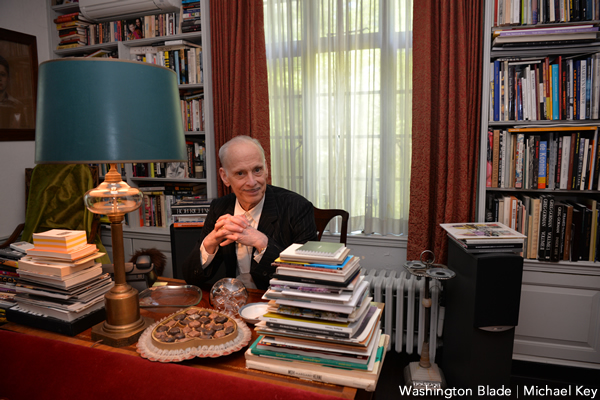
Writer and filmmaker John Waters says he grew up going to drive-in movies.
“We went every single night. With the same movie playing.“
He had a certain routine.
“I used to…drive in alone with two cases of beer covered in a blanket and with four people in the trunk.”
Now Waters is working to introduce a new generation to drive-in movie theaters, which are making a comeback because of the COVID-19 pandemic.
“When the pandemic happened, it did bring drive-ins back,” he said in a recent interview. “Most young people have never been to a drive-in. I think it’s a good answer [to the pandemic], and it’s a good atmosphere for certain types of movies.”
Waters is getting ready to host a double feature drive-in movie night on May 21, as part of the Maryland Film Festival that runs from May 19 to May 27. The theme is “Russian Shock Night at the Drive-In,” because he selected two Russian films to present: Why Don’t You Just Die! and The Road Movie.
This will be the third time during the pandemic that Waters has hosted a drive-in night for a film festival, after double features last year for the Provincetown International Film Festival, at the Wellfleet Drive-In Theatre on Cape Cod, and the New York Film Festival, at The Bronx Zoo.
This time the venue is Druid Hill Park, home of the Maryland Zoo in Baltimore. The film festival is creating a pop-up drive-in theater on the sloping lawn of the Mansion House, the zoo’s headquarters, in conjunction with Baltimore’s Department of Recreation and Parks. It will have a 52-foot-wide inflatable screen and space for 93 vehicles. The price of admission is $25 per car, and tickets sold out in a day.
The film festival is the first organization to get a permit for an in-person outdoor gathering on public property in more than a year from the city of Baltimore, where Mayor Brandon Scott has been cautious about allowing public events. The mayor wouldn’t allow the annual July 4th fireworks show at the city’s Inner Harbor or the annual Artscape festival in July.
“I’m proud to the first one,” said Waters, who came up with the idea for a drive-in during the festival. “I’m thankful that they’re letting us do it.”
Based on his experience at the other festivals, Waters said, he’s confident it will be successful. “I love the idea of the drive-in. I think it will be good, and it is safe. Everybody’s in their car. Even if you haven’t been vaccinated. Well, I hope you don’t come if you haven’t been vaccinated. But still, everybody’s in their car. It’s at a social distance.”
Waters, who lives in Baltimore, traditionally introduces a movie of his choice on Friday night of the annual film festival, and it’s a highlight of the event. Last year it didn’t happen because the festival was cancelled due to the pandemic.
This year the festival is back as mostly a virtual event, because the theater where it’s held is still subject to COVID-related seating restrictions. Organizers asked Waters to bring back his signature movie night. He didn’t want it to be online.
“I said, I hate virtual. I’m so sick of virtual,” he recalled. “They knew I had done a drive-in at the New York Film Festival, where we showed Salo and the Gasper Noe movie, Climax…It works well in the drive In.”
Film festival organizers, led by executive director Sandra Gibson, collaborated with city officials to identify the site and figure out the details. “You don’t have to be vaccinated, but you will have to wear masks…if you’re outside your car,” Gibson said.
The parks department didn’t place a limit on the size of vehicles or the number of people in a vehicle, although larger ones will be located towards the back of the lot, she said.
“If you have a hatchback, we’ll let you open your hatchback and sit in the hatchback,” she said. “We’ll let you sit in the back of a flatbed truck as long as you have a mask on. If you have an SUV that holds eight people, we’re fine with that as long as everybody can see. But they have said you have to stay in your car.”
Waters describes Why Don’t You Just Die! as “a grindhouse, seat-ripping blood-drenched family revenge comedy that begs to be seen in a drive-in with a crazy audience cheering from their cars,” and The Road Movie as “a dash cam documentary from hell that puts you live in the car accidents and near misses all for your rage viewing pleasure.”
He said the two movies are in line with the ones he usually picks for screenings in the film festival’s Parkway Theatre, “but these two I think are even better for a drive-in setting.”
The Road Movie, featuring footage compiled from Russian dashboard cameras, has a car-oriented theme that fits with the drive-in set-up and will be the second film of the night. “You’ll drive home safely after this one, I guarantee you,” Waters said.
He chose a Russian theme, he said, “just because I loved these movies and I knew that Russia was especially kind of unmentionable these days. I’m not a fan of Russia either, but maybe everybody could come dressed as Nikita Khrushchev and his wife, or Putin.”
Given the climate in Russia, “it’s just kind of amazing that these two movies ever got made there,” he said. “They’re pretty radical movies. Especially Why Don’t You Just Die!”
Waters said the location brings back fond memories, in part because the zoo is there and he lived nearby: “I’ve always liked Druid Hill…I used to live across the street at Temple Gardens Apartments for many years.”
He jokes that he’s a little suspicious that the city permitted his event but not the Fourth of July fireworks, citing COVID-19 as the reason.
“Maybe they hope we all get it,” he said. “That’s a new one. We had the censor board. Maybe this is a different way to censor.”
He said he hopes the 17-year cicadas, insects that are just coming out of the ground in Maryland after a 17-year hiatus, make an appearance when his movies are showing.
“I wouldn’t even be mad,” he said, if they “were smashing into the windshields while we were watching. But then we should have shown The Swarm.”
Given the park setting, “you can bet there might be some,” he went on, imagining the possibilities of an insect invasion on his movie night. “It would only add to the disaster theme and the insaneness of the event, to be attacked by nature at Druid Hill Park and watching crazy Russian movies.”
According to the website DriveInMovie.com, there are about 325 drive-in movie theaters currently operating around the United States, down from a peak of more than 4,000 in the 1950s.
Besides the ones in operation, “there are many more that are permanently closed but still remain standing and could potentially be reopened at some point in the future,” says the website, which lists the drive-ins in every state and those that have closed in the past 20 years. “In fact, there have been several drive-in theaters that have been reopened the past couple of years after sitting dark for 20 or even 30 years.”
The first “true” drive-in, the website states, was the “Automobile Movie Theatre” in Camden, New Jersey. It was opened on June 6, 1933 by Richard Hollingshead, a movie buff who initially experimented with showing movies in the driveway of his home.
Hollingshead got a U. S. patent for his drive-in, which the drive-in website describes as essentially a movie screen tied to some trees, a radio placed behind the screen for sound, a film projector on the hood of a car, and a strategy for spacing out cars. His slogan was “The whole family is welcome, regardless of how noisy the children are.”
But Hollingshead’s patent was later declared invalid, and that allowed others to follow his formula without paying him royalties. “Maybe one of the reasons Drive-In Movies are so much more popular in the United States than in other countries is because the drive-in movie is truly an American invention,” the website states.
Today, both vintage drive-ins and pop-up drive-ins are being put to a variety of uses, from sites for fundraisers to filming locations to settings for socially-distanced music performances. When traditional movie theaters were shuttered because of the pandemic, drive-ins became an alternative because the audience remains outdoors.
In some cases, the land is used for swap meets and flea markets when movies aren’t being shown. Joe Biden held drive-in rallies when he was running for President, and voters applauded by honking horns and flashing headlights.
Waters, who just turned 75 and has filmed all of his movies in and around Baltimore, is a drive-in aficionado.
“I’ve spent my whole life in the drive-in,” he said. “I’ve written about them. I grew up in the Timonium Drive-In…The Bengies Drive-In, we filmed Cecil B. Demented in for a week. I spent a week on the roof of that concessions stand.”
In Polyester, “I had an art drive-in,” he said. “The joke was that they showed art movies, and in the concessions stand they had caviar and champagne. That was filmed at the Edmondson Drive-in” in Baltimore.
For him and others in his generation Waters said, the drive-in was “the first apartment’ where “kids could actually get away from their parents.”
It also taught him about saving money by sneaking people in — something he doesn’t want to see on his night.
“I’ll be catching you if you try to sneak in in the trunk, let me warn you,” he said. “I know all the tricks sneaking in the drive-in.”
For this week’s event, the plan is that Waters will be there and will be visible on screen, introducing the movies. Though he’s been vaccinated, there won’t be a Meet-and-Greet session with fans, for safety reasons. “He knows that we’ve got restrictions and he may have his own,” Gibson said. “He’s really conscious that it’s still a pandemic.”
The city has come up with a list of rules and regulations for those with tickets. Besides the requirement that people wear masks when outside the vehicle, no food or drink may be consumed outside of vehicles. Car windows must be up when eating. Tailgating isn’t allowed. Everyone must pre-register and sign a parks department waiver before arriving.
Waters said he read all the rules and couldn’t find any restrictions against having sex in a vehicle during a movie.
“I guess that means you can have sex,” he said. “When I was young, that’s what everybody did.”
The same goes for drinking in a vehicle, he said. “That’s something you always did at the drive-in too.”
The list of rules and regulations is part of the traditional drive-in experience, because every drive-in has rules. In a way, Waters said, it also goes along with the theme for the night:
“It will feel like the Russian government is watching.”
Although the drive-in night is sold out, other tickets are still available to the Maryland Film Festival, including Pride Night and eight LGBTQ-oriented films viewable online. Information about the lineup is at mdfilmfest.com.
a&e features
Transmission DC breathes new life into a storied sound space
A fresh home for boundary-pushing culture on H Street

Late last year, phoenix-style, a fresh home for boundary-pushing culture arose on the H Street corridor. Transmission DC – a queer, trans, and POC-owned, operated, and centered community-focused venue – powered on in the former home to the Rock & Roll Hotel (famously, not a hotel, but very much rock & roll). Transmission (1353 H St., N.E.) arrives secure in its mandate – or even birthright – to provide a place to celebrate creativity and music through a lens of inclusivity and respect.
Transmission’s team brings experience, but also representation. Owners/partners Kabir Khanna (who is also programming director), Katii B, Ellie McDyre, and Kelli Kerrigan together previously managed 618 productions, a venue in Chinatown, crafting “some of D.C.’s freakiest parties, raves, and mosh pits” they note.
They packed up operations last fall to a space curated specifically for D.C.’s underground music and culture scene, building their efforts in Chinatown to bring in more fans in queer and POC circles.
Transmission, Khanna points out, is built on DIY values. In the music scene, DIY means that promoters and organizers – often disconnected from the mainstream and part of marginalized communities – build shows and programs collaboratively, but independently from institutions, supporting each other as smaller, independent venues close. Here, Transmission aims to ensure that those putting together these underground inclusive shows have a more permanent and stable home, can have access to resources, and can provide more sustainable income to artists. “We’re trying to get more people to support and enjoy the music, and also give artists and organizers within the DIY community more structure and a larger cut,” says Khanna.
Khanna also notes that Transmission operates “under the principles of safety, inclusivity, and respect.” McDyre added that even at venues that claim inclusivity, that statement might not take place in practice. We’re “not just pitting up a rainbow flag,” says McDyre, but as some of the owners are trans and POC, audiences can see themselves reflected at the top.
Much like the DIY nature of the music community, the Transmission owners brought a DIY ethos to turning around their space.
In March 2020 – the height of COVID lockdowns – Rock & Roll Hotel suddenly shuttered, though not due to the pandemic; instead, the venue claimed that decreasing sales and increasing competition led to the closure. For 14 years, it was the central spot for cheap beer and lesser-known and celebrated acts. The space stood vacant for more than five years, until Transmission turned the power back on.
“When we got into the space, it was effectively abandoned for years,” says Khanna. “There was a ton of mold, and paint primer covering all surfaces. It was nearly falling apart.” Khanna noted that many music venues like this one, regardless of how well it was maintained, “get the shit kicked out of it,” given the nature of shows. The team called in mold removal contractors, ripped up most of the floorboards, and started fresh.
Transmission’s first floor is styled as a stripped-down black box: the better to take in the music. “It’s minimal on purpose to act as a canvas for set design and music,” without a specific aesthetic, says Khanna. Moving upstairs, the second floor has been opened up, removing some walls, and now has a larger dance area than the first floor. Beyond the first two performance levels, and a holdover from Rock & Roll Hotel, is the rooftop. Though without a stage, the rooftop space is filled with murals splashed across the walls, with a full bar. Transmission’s current capacity is 496, but the team is looking to grow that number. Transmission will also leverage the full kitchen that Rock & Roll Hotel operated, bringing in Third Hand Kitchen to offer a variety of food, including vegan and vegetarian options.
Khanna pointed out an upcoming show reflective of Transmission’s inclusive ethos: Black Techo Matters on Feb. 27. The event is set to be “a dynamic, collaborative night of underground electronic music celebrating Black History Month.” Khanna says that techno came from Black music origins, and this event will celebrate this genesis with a host of artists, including DJ Stingray 313, Carlos Souffront, and Femanyst.
Movies
Moving doc ‘Come See Me’ is more than Oscar worthy
Poet Laureate Andrea Gibson, wife negotiate highs and lows of terminal illness

When Colorado Poet Laureate Andrea Gibson died from ovarian cancer in the summer of 2025, the news of their passing may have prompted an outpouring of grief from their thousands of followers on social media, but it was hardly a surprise.
That’s because Gibson – who had risen to both fame and acclaim in the early 2000s with intense live performances of their work that made them a “superstar” at Poetry Slam events – had been documenting their health journey on Instagram ever since receiving the diagnosis in 2021. During the process, they gained even more followers, who were drawn in by the reflections and explorations they shared in their daily posts. It was really a continuation, a natural evolution of their work, through which their personal life had always been laid bare, from the struggles with queer sexuality and gender they experienced in their youth to the messy relationships and painful breakups of their adult life; now, with precarious health prohibiting a return to the stage, they had found a new platform from which to express their inner experience, and their fans – not only the queer ones for whom their poetry and activism had become a touchstone, but the thousands more who came to know them through the deep shared humanity that exuded through their online presence – were there for it, every step of the way.
At the same time, and in that same spirit of sharing, there was another work in progress around Gibson: “Come See Me in the Good Light,” a film conceived by their friends Tig Notaro and Stef Willen and directed by seasoned documentarian Ryan White (“Ask Dr. Ruth”, “Good Night, Oppy”, “Pamela, a Love Story”), it was filmed throughout 2024, mostly at the Colorado home shared by Gibson and their wife, fellow poet Megan Falley, and debuted at the 2025 Sundance Film Festival before a release on Apple TV in November. Now, it’s nominated for an Academy Award.
Part life story, part career retrospective, and part chronicle of Gibson and Falley’s relationship as they negotiate the euphoric highs and heartbreaking lows of Gibson’s terminal illness together, it’s not a film to be approached without emotional courage; there’s a lot of pain to be vicariously endured, both emotional and physical, a lot of hopeful uplifts and a lot of crushing downfalls, a lot of spontaneous joy and a lot of sudden fear. There’s also a lot of love, which radiates not only from Gibson and Falley’s devotion and commitment to being there for each other, no matter what, but through the support and positivity they encounter from the extended community that surrounds them. From their circle of close friends, to the health care professionals that help them navigate the treatment and the difficult choices that go along with it, to the extended family represented by the community of fellow queer artists and poets who show up for Gibson when they make a triumphant return to the stage for a performance that everyone knows may well be their last, nobody treats this situation as a downer. Rather, it’s a cause to celebrate a remarkable life, to relish friendship and feelings, to simply be present and embrace the here and now together, as both witness and participant.
At the same time, White makes sure to use his film as a channel for Gibson’s artistry, expertly weaving a showcase for their poetic voice into the narrative of their survival. It becomes a vibrant testament to the raw power of their work, framing the poet as a seminal figure in a radical, feminist, genderqueer movement which gave voice to a generation seeking to break free from the constraints of a limited past and imagine a future beyond its boundaries. Even in a world where queer existence has become – yet again – increasingly perilous in the face of systemically-stoked bigotry and bullying, it’s a blend that stresses resilience and self-empowerment over tragedy and victimhood, and it’s more than enough to help us find the aforementioned emotional courage necessary to turn what is ultimately a meditation on dying into a validation of life.
That in itself is enough to make “Come See Me in the Good Light” worthy of Oscar gold, and more than enough to call it a significant piece of queer filmmaking – but there’s another level that distinguishes it even further.
In capturing Gibson and Falley as they face what most of us like to think of as an unimaginable future, White’s quietly profound movie puts its audience face-to-face with a situation that transcends all differences not only of sexuality or gender, but of race, age, or economic status as well. It confronts us with the inevitability few of us are willing to consider until we have to, the unhappy ending that is rendered certain by the joyful beginning, the inescapable conclusion that has the power to make the words “happily ever after” feel like a hollow promise. At the center of this loving portrait of a great American artist is a universal story of saying goodbye.
Yes, there is hope, and yes, good fortune often prevails – sometimes triumphantly – in the ongoing war against the cancer that has come to threaten the palpably genuine love this deeply-bonded couple has found together; but they (and we) know that, even in the best-case scenario, the end will surely come. All love stories, no matter how happy, are destined to end with loss and sorrow; it doesn’t matter that they are queer, or that their gender identities are not the same as ours – what this loving couple is going through, together, is a version of the same thing every loving couple lucky enough to hold each other for a lifetime must eventually face.
That they meet it head on, with such grace and mutual care, is the true gift of the movie.
Gibson lived long enough to see the film’s debut at Sundance, which adds a softening layer of comfort to the knowledge we have when watching it that they eventually lost the battle against their cancer; but even if they had not, what “Come See Me in the Good Light” shows us, and the unflinching candor with which it does so, delivers all the comfort we need.
Whether that’s enough to earn it an Oscar hardly matters, though considering the notable scarcity of queer and queer-themed movies in this year’s competition it might be our best shot at recognition.
Either way, it’s a moving and celebratory film statement with the power to connect us to our true humanity, and that speaks to a deeper experience of life than most movies will ever dare to do.
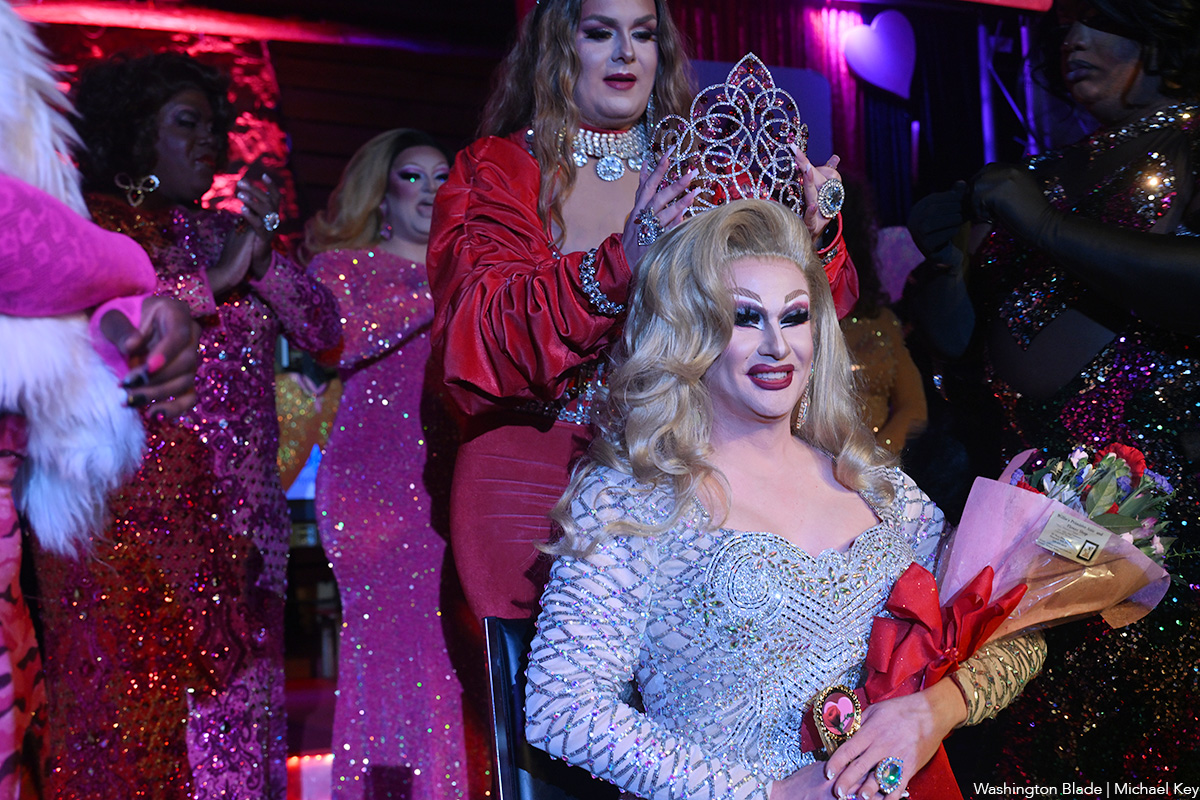
The 44th annual Queen of Hearts pageant was held at The Lodge in Boonsboro, Md. on Friday, Feb. 20. Six contestants vied for the title and Bev was crowned the winner.
(Washington Blade photos by Michael Key)
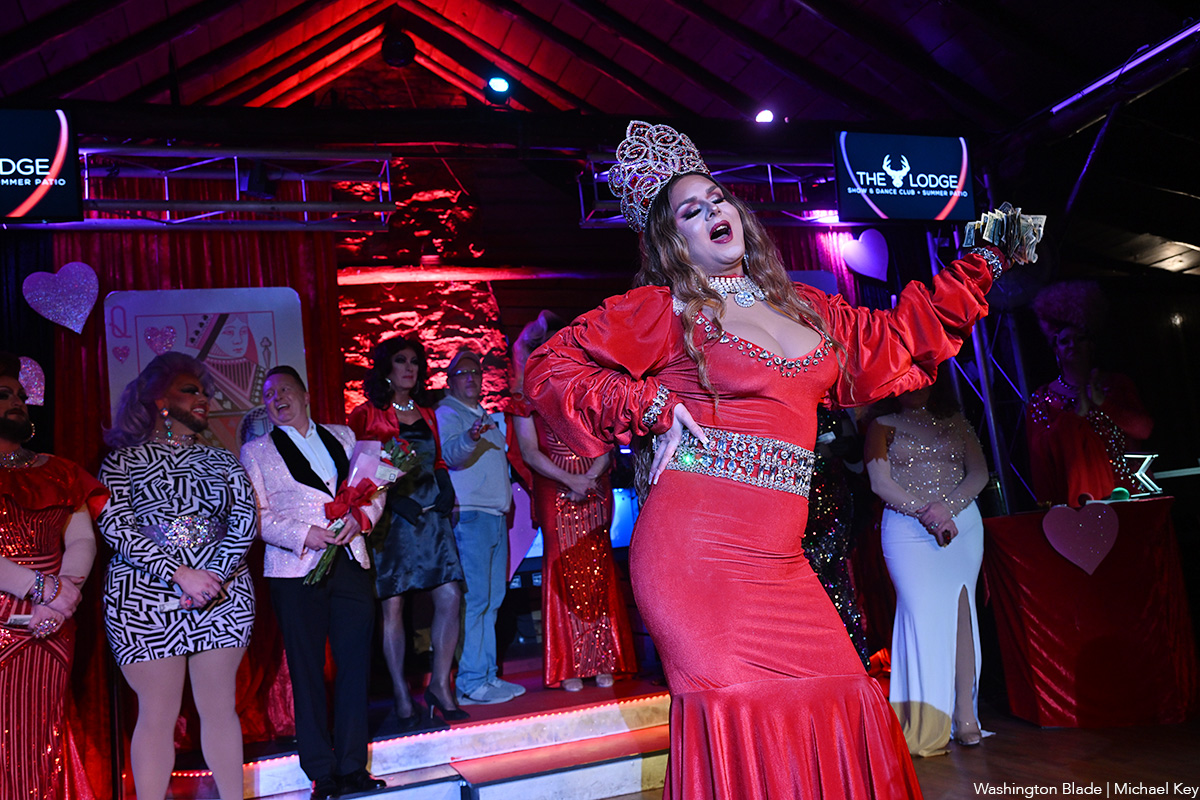
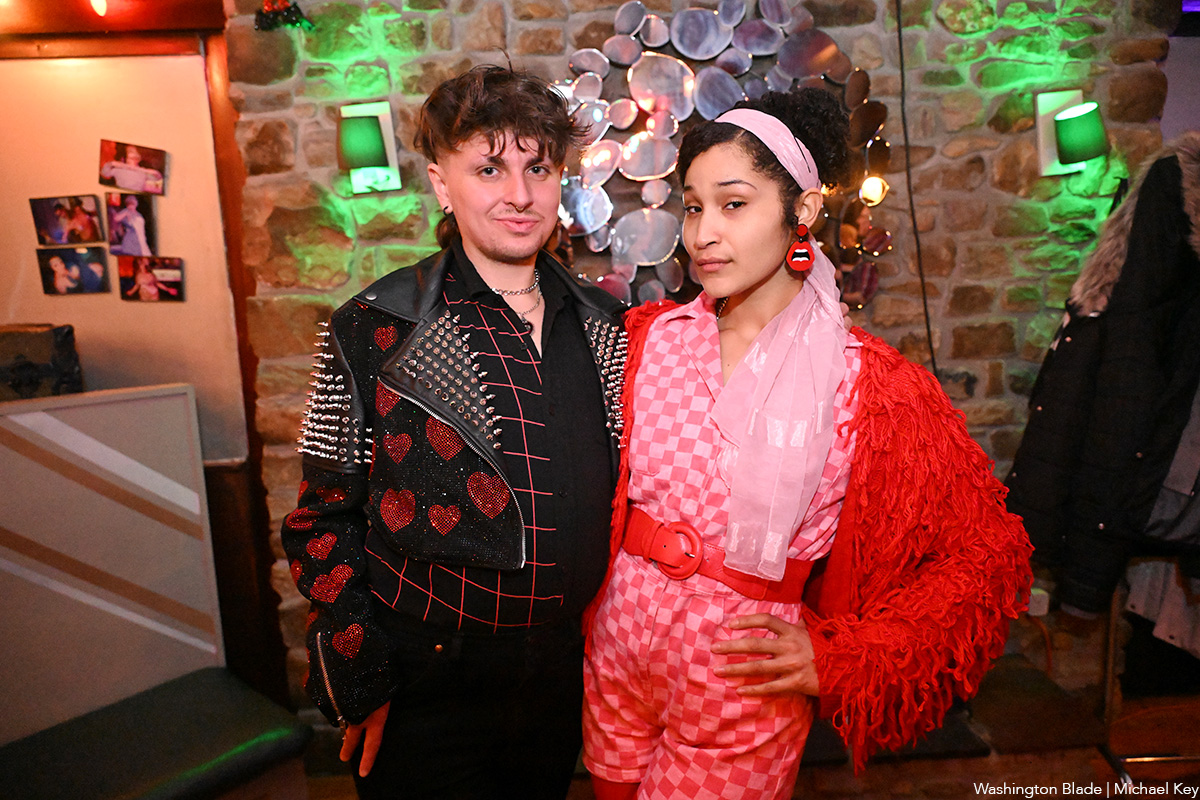
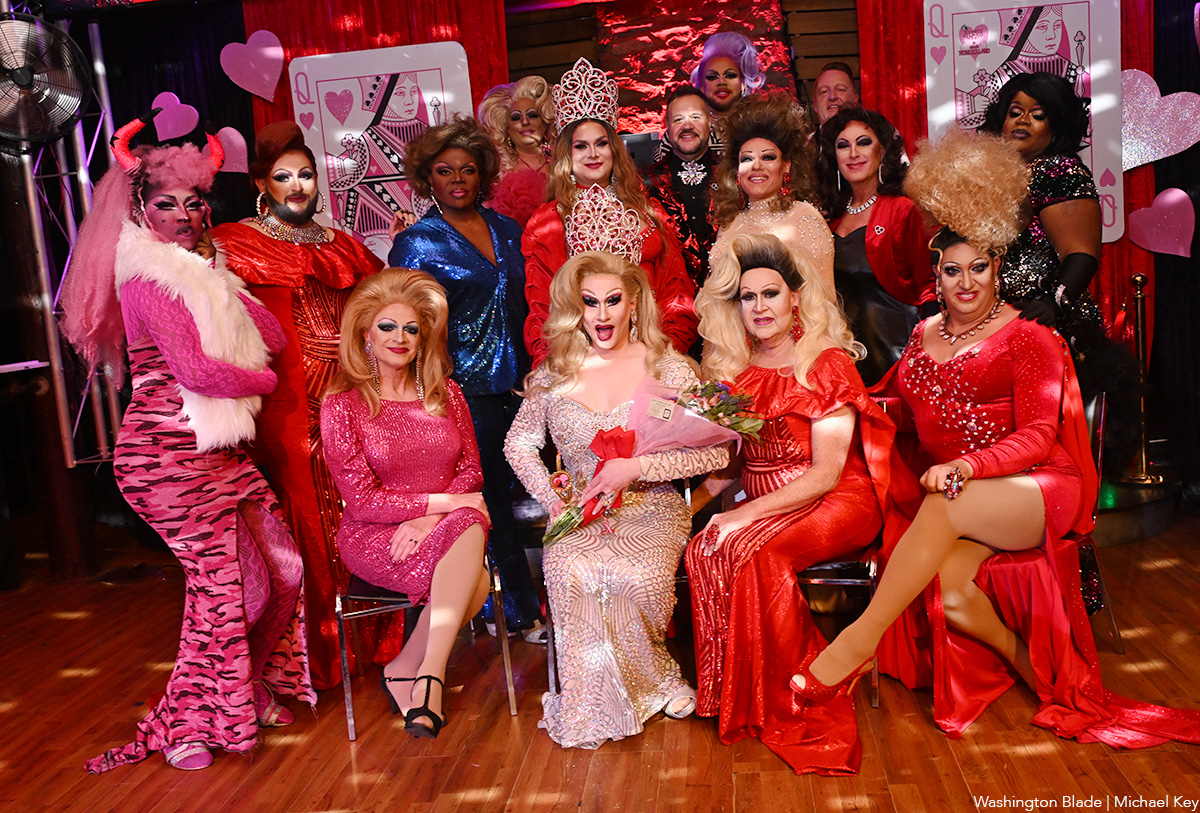
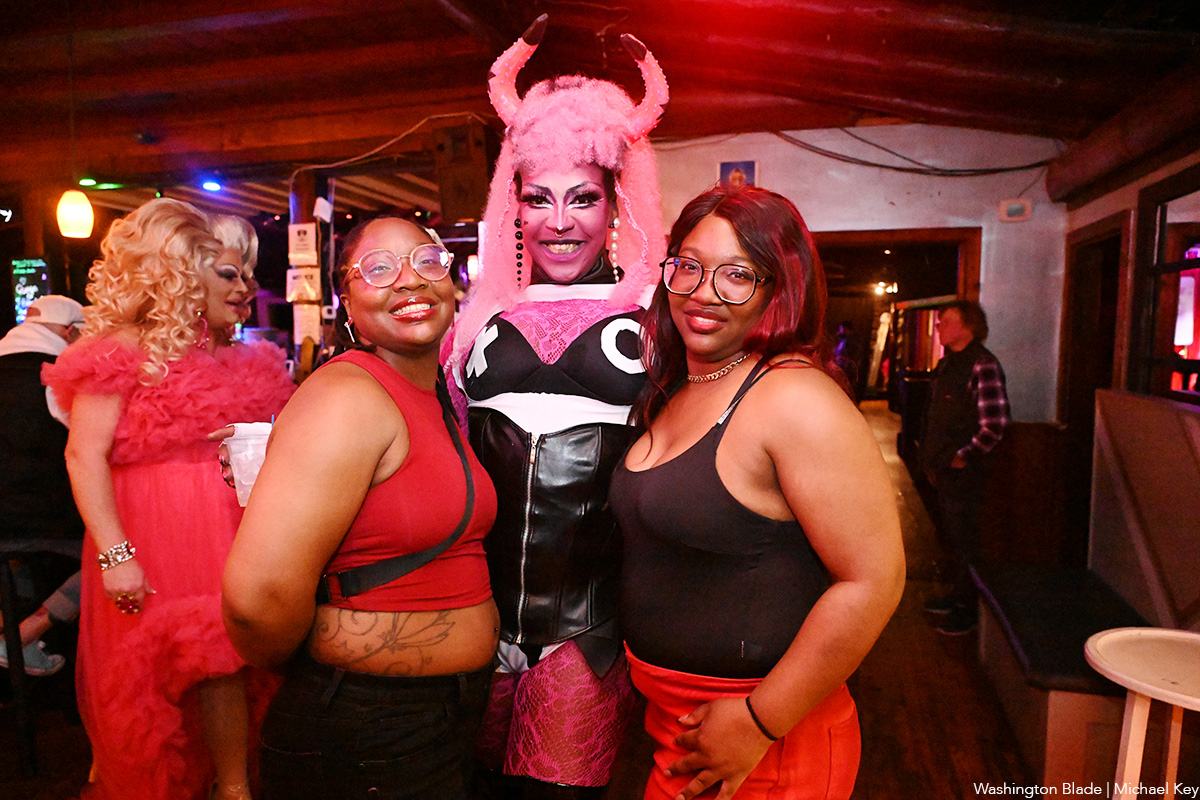
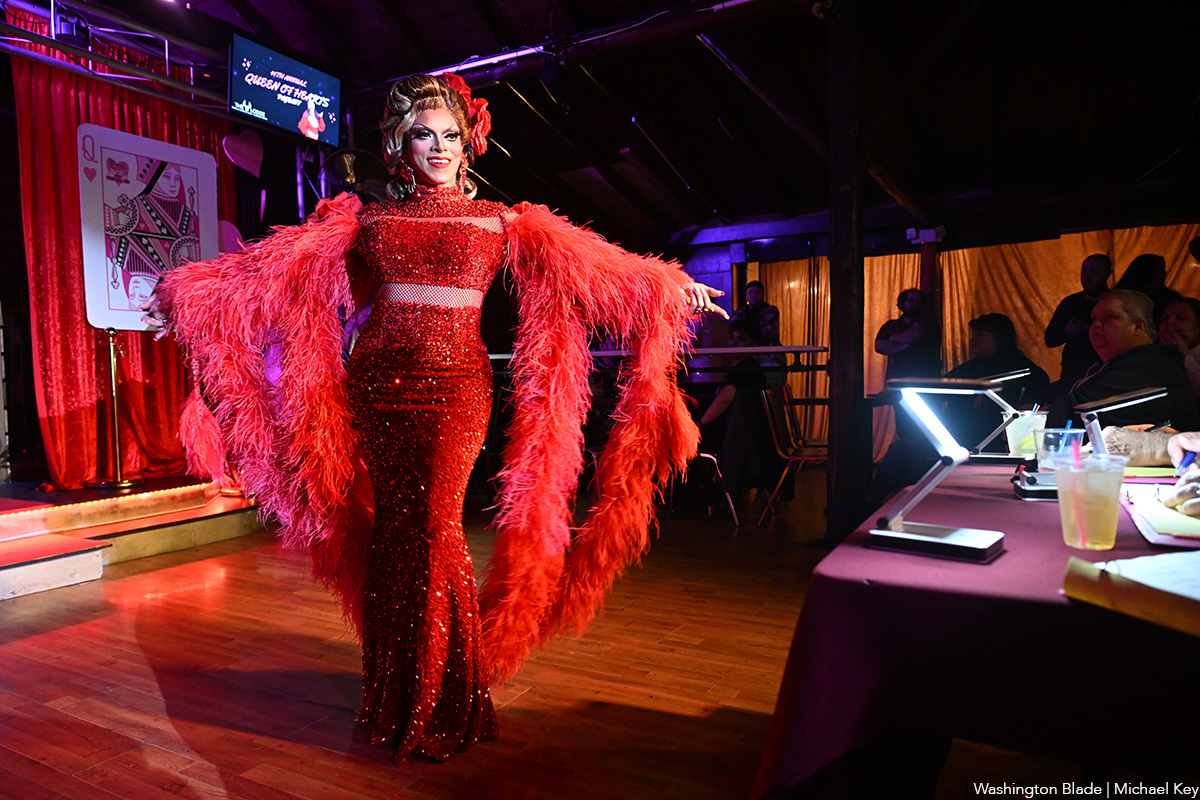
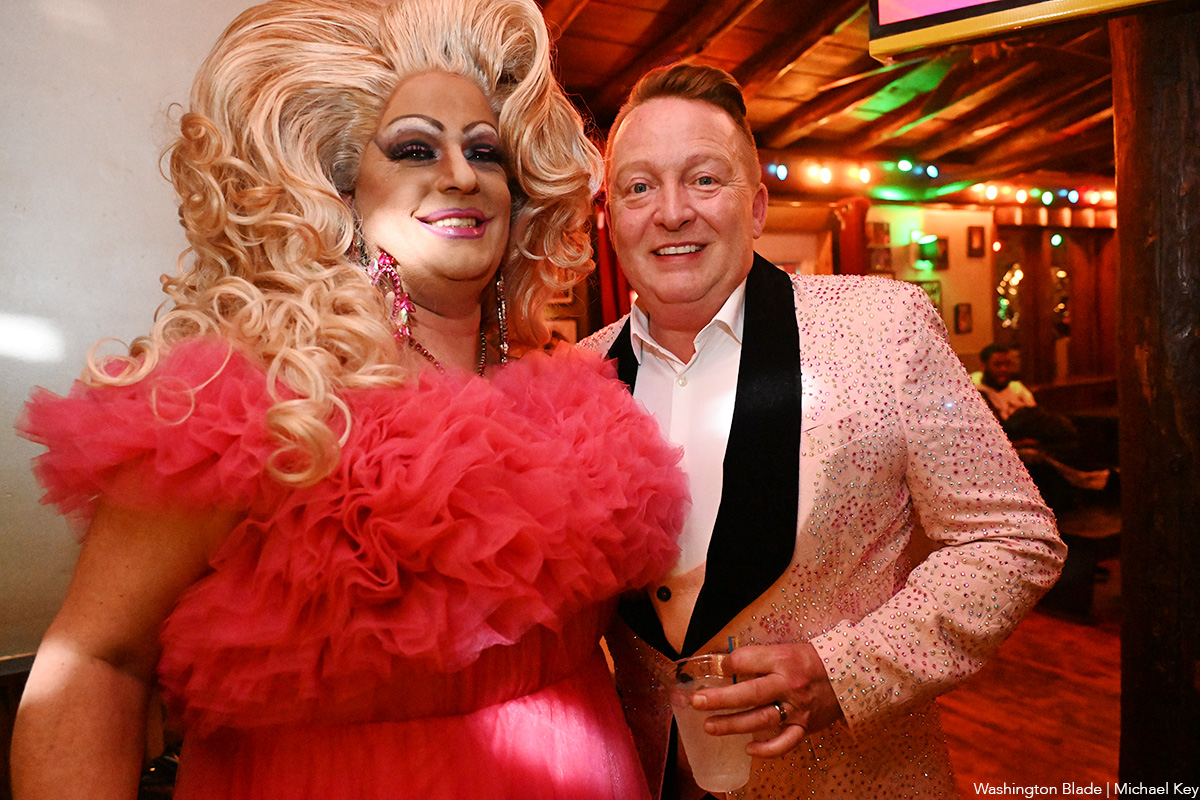
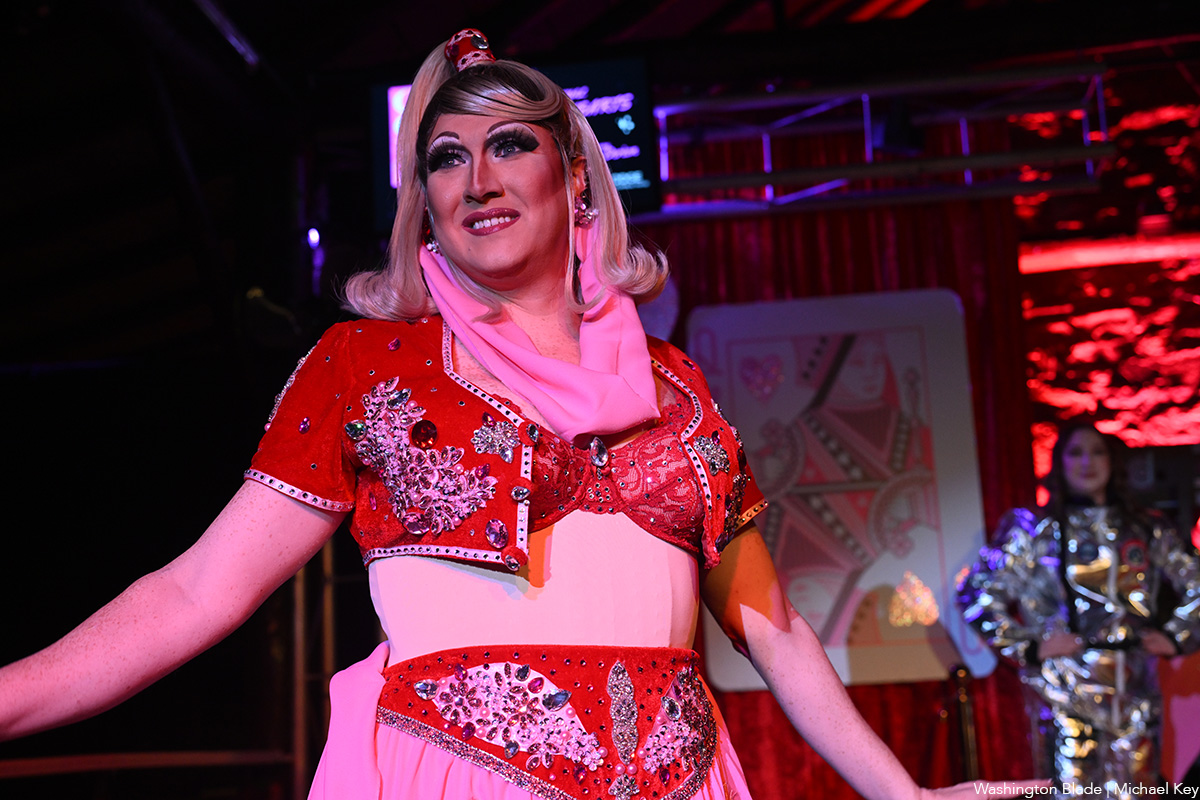
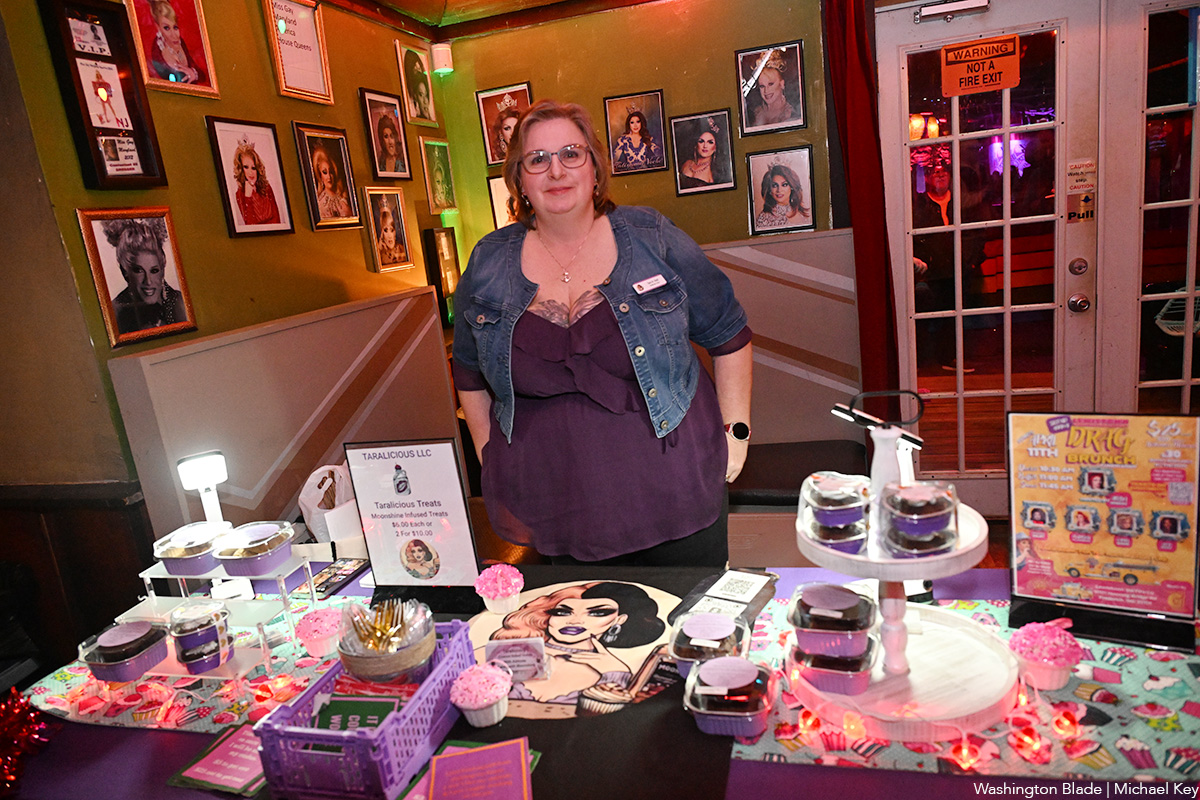
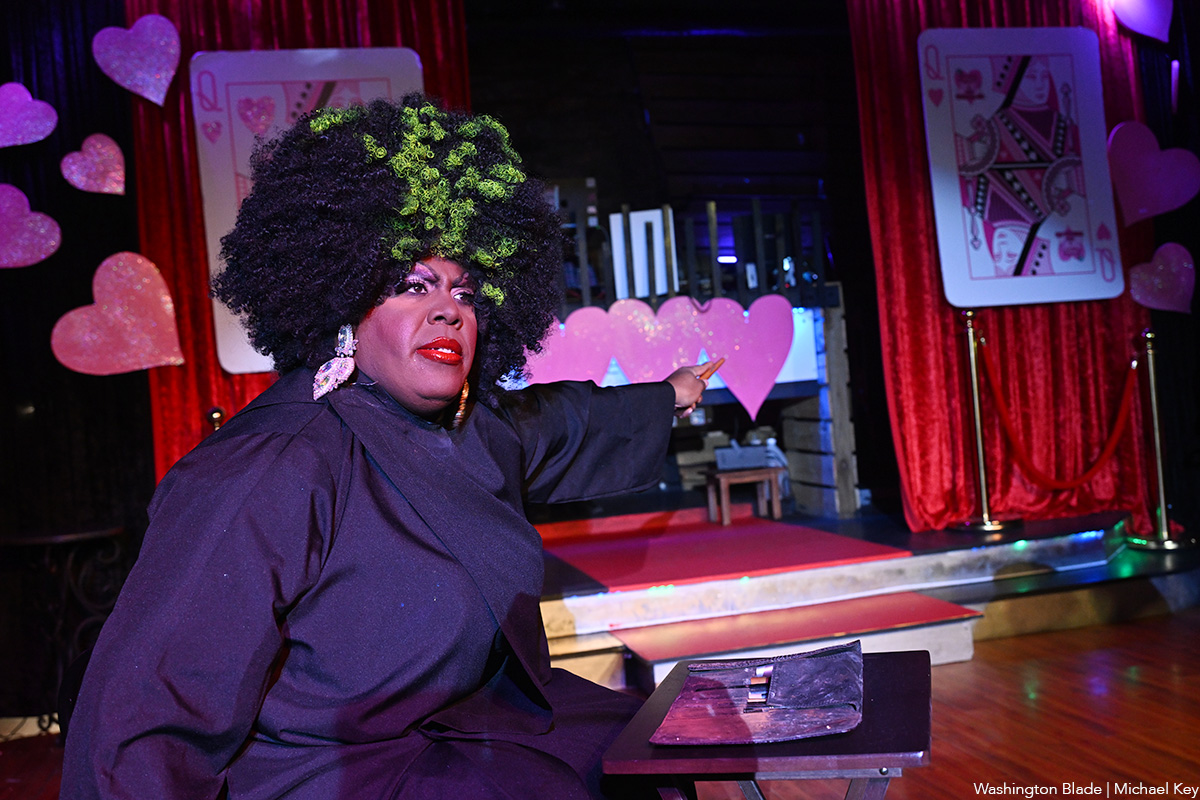
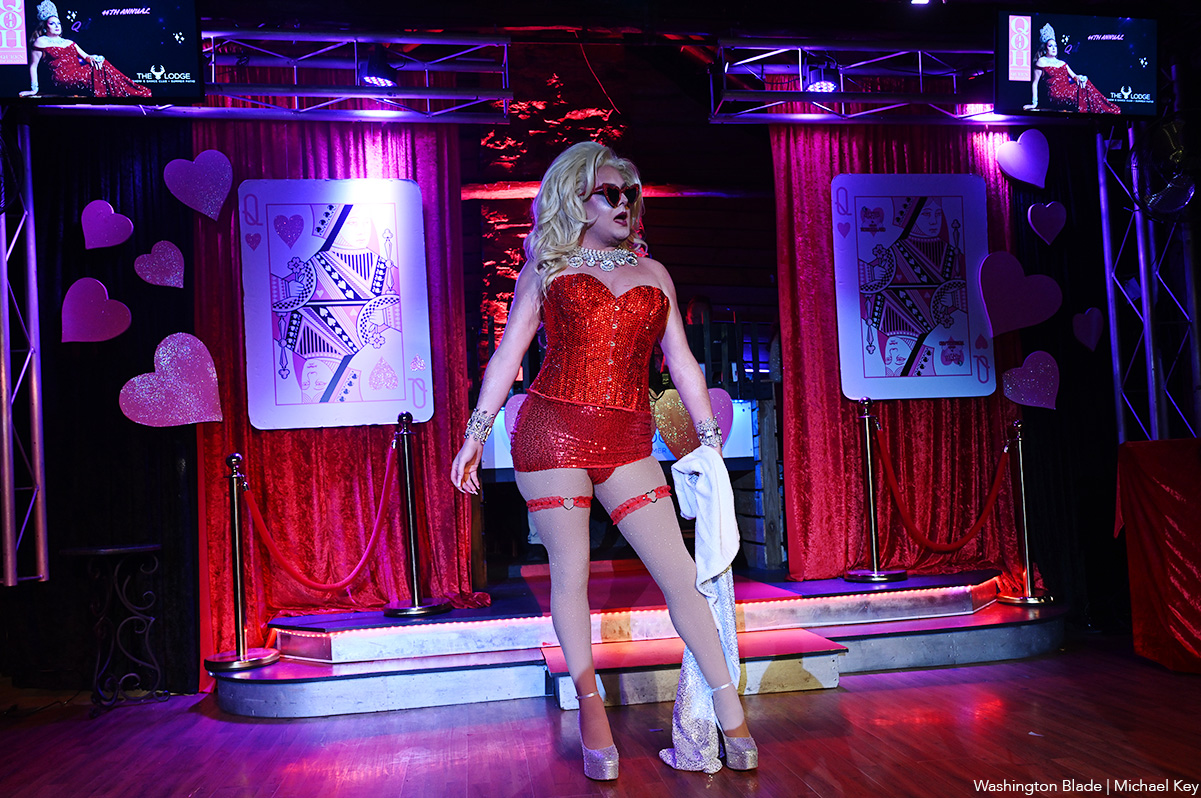
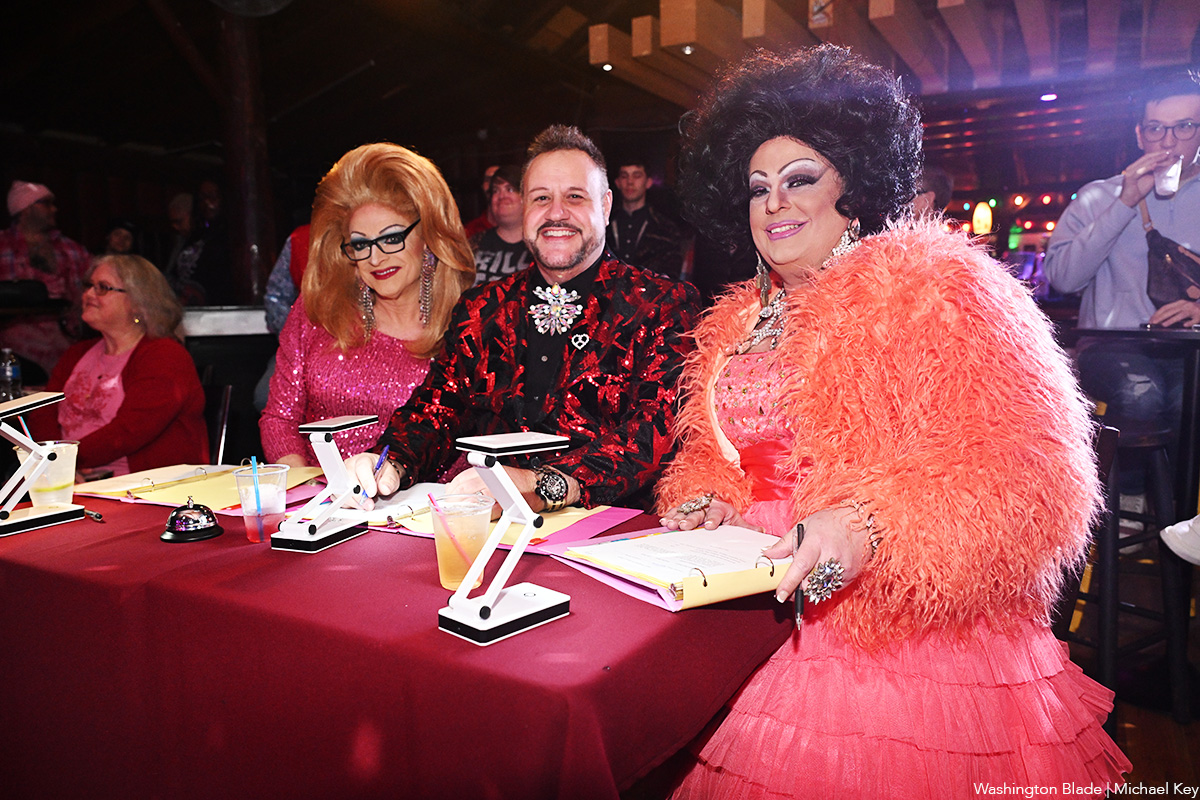
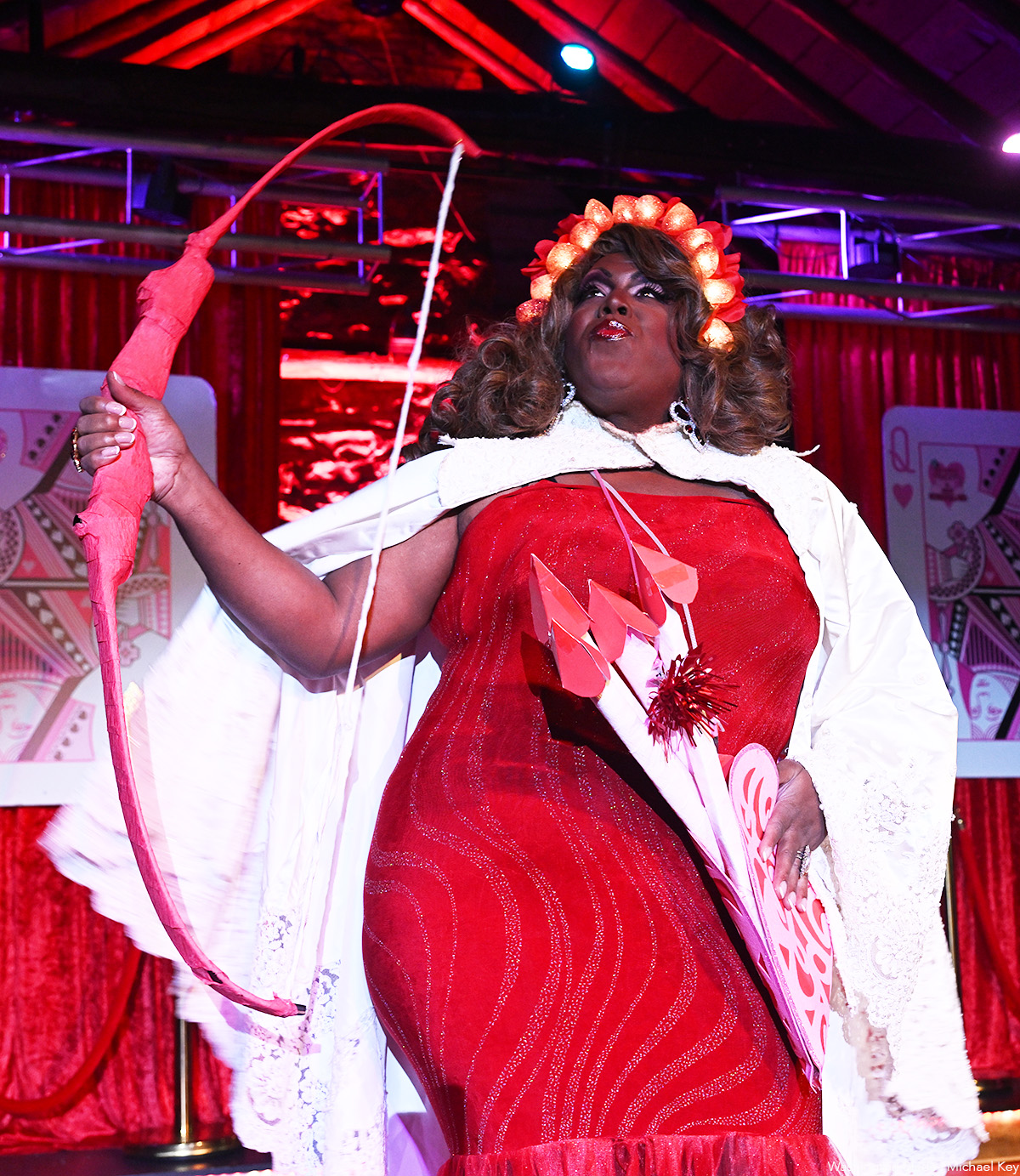
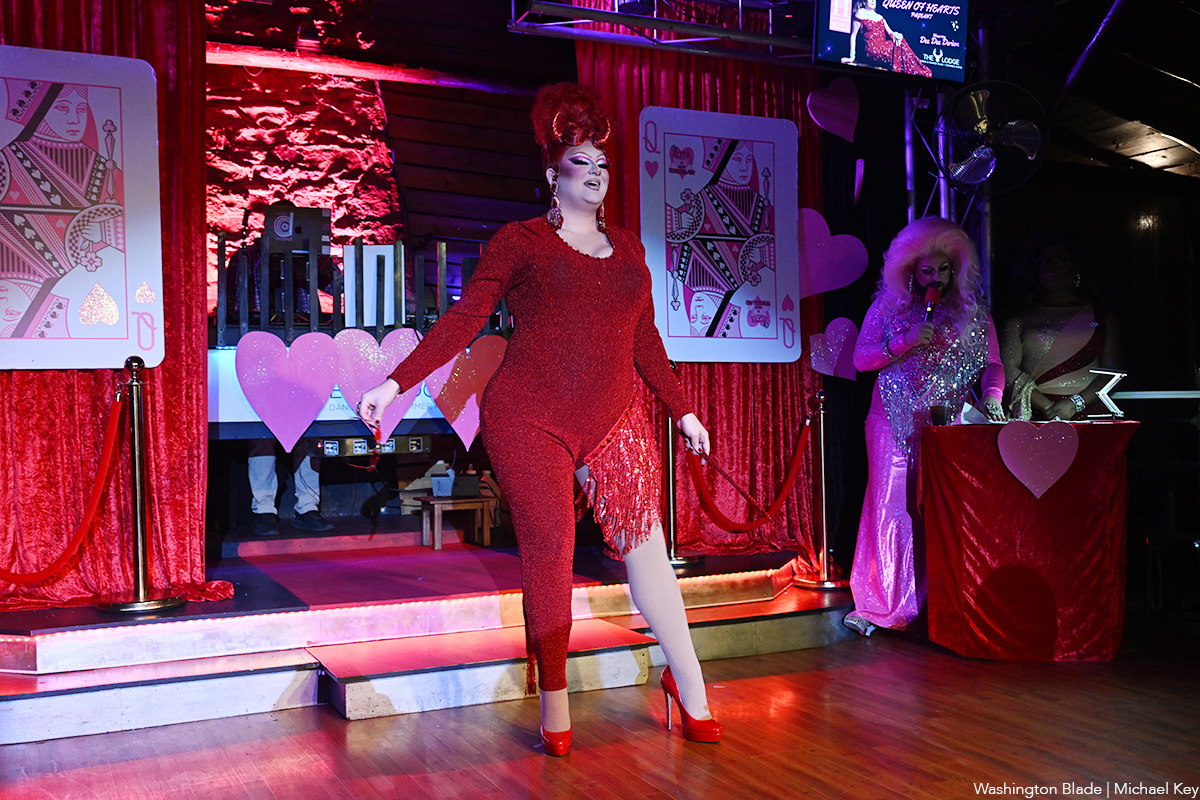
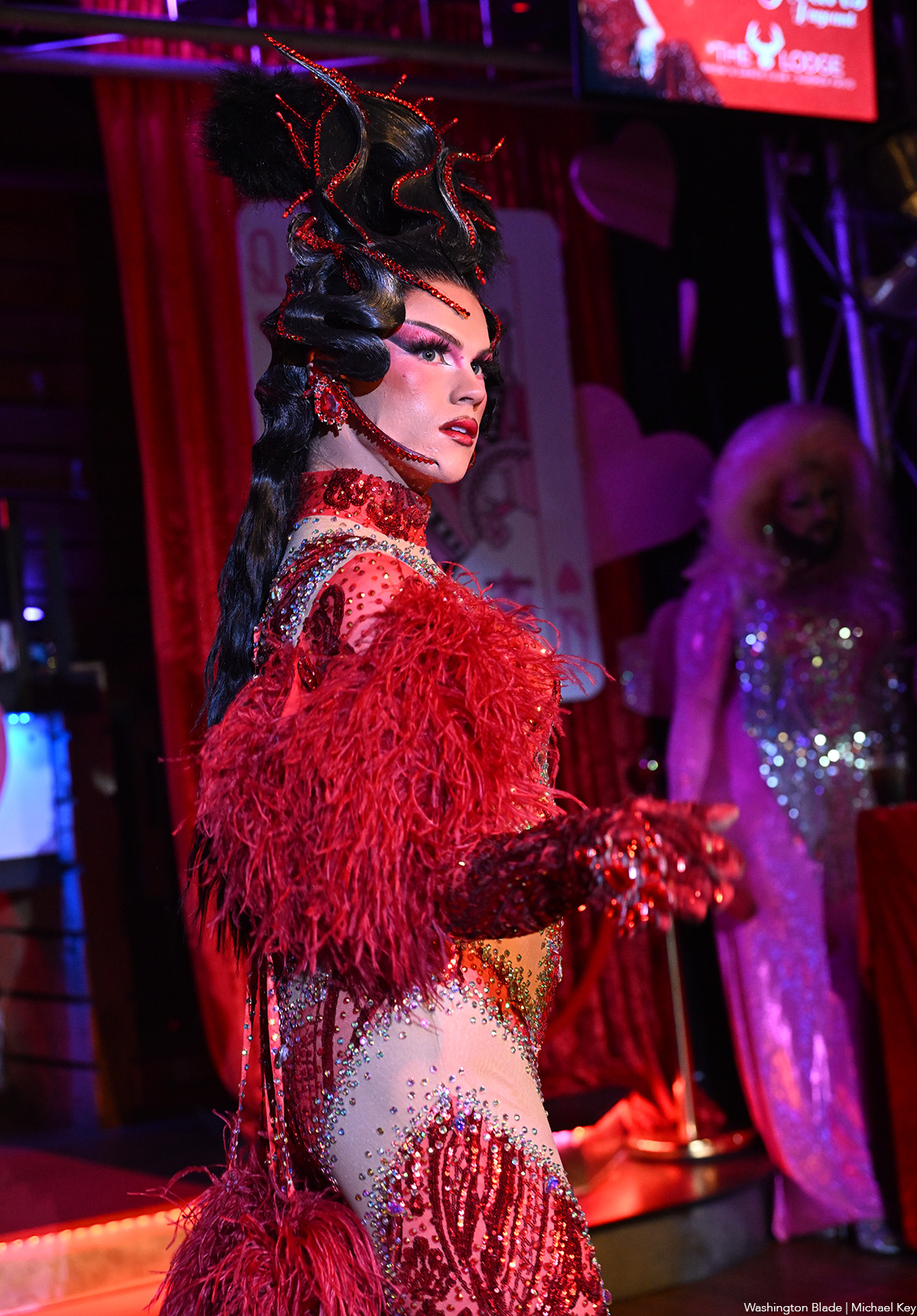
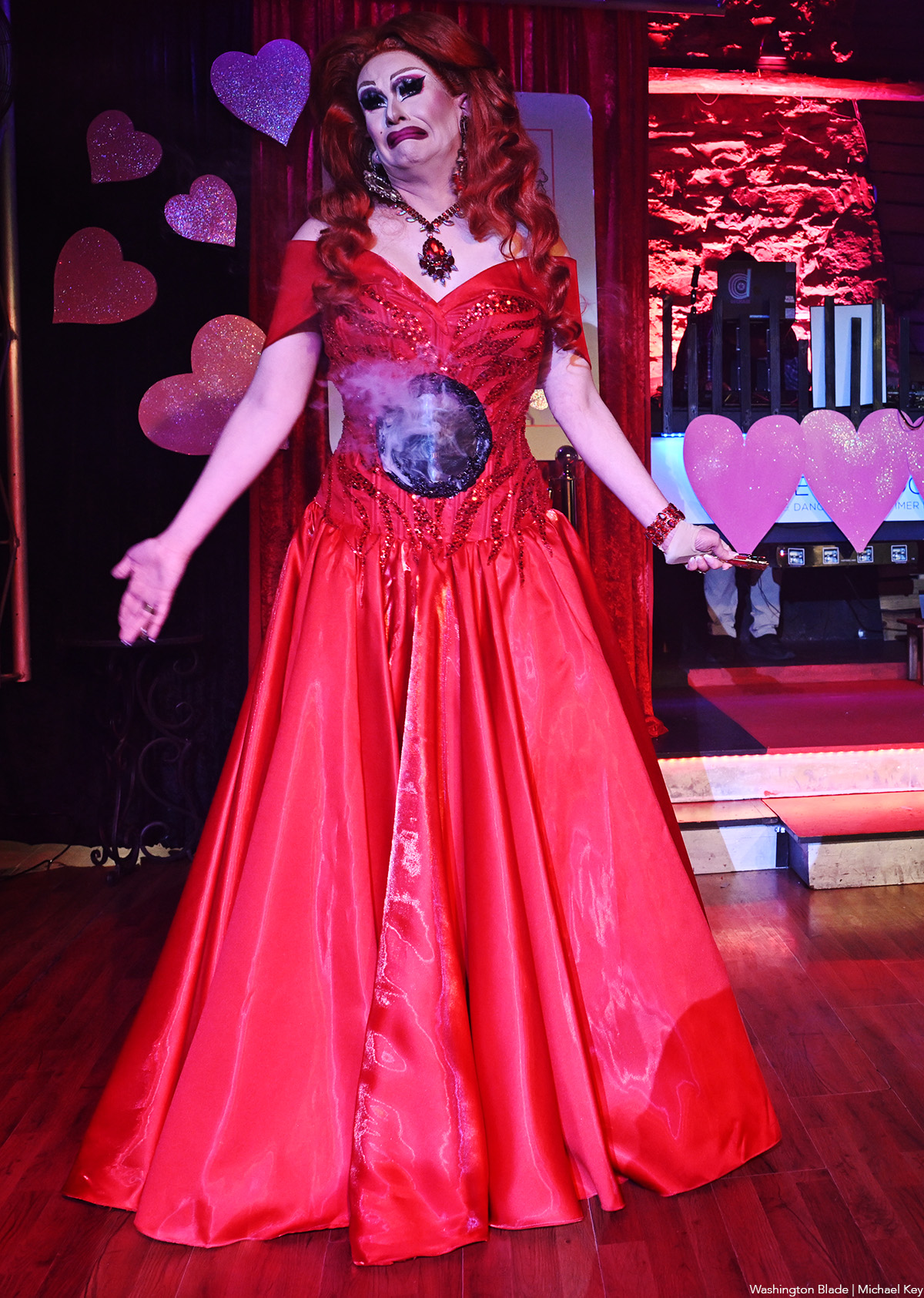
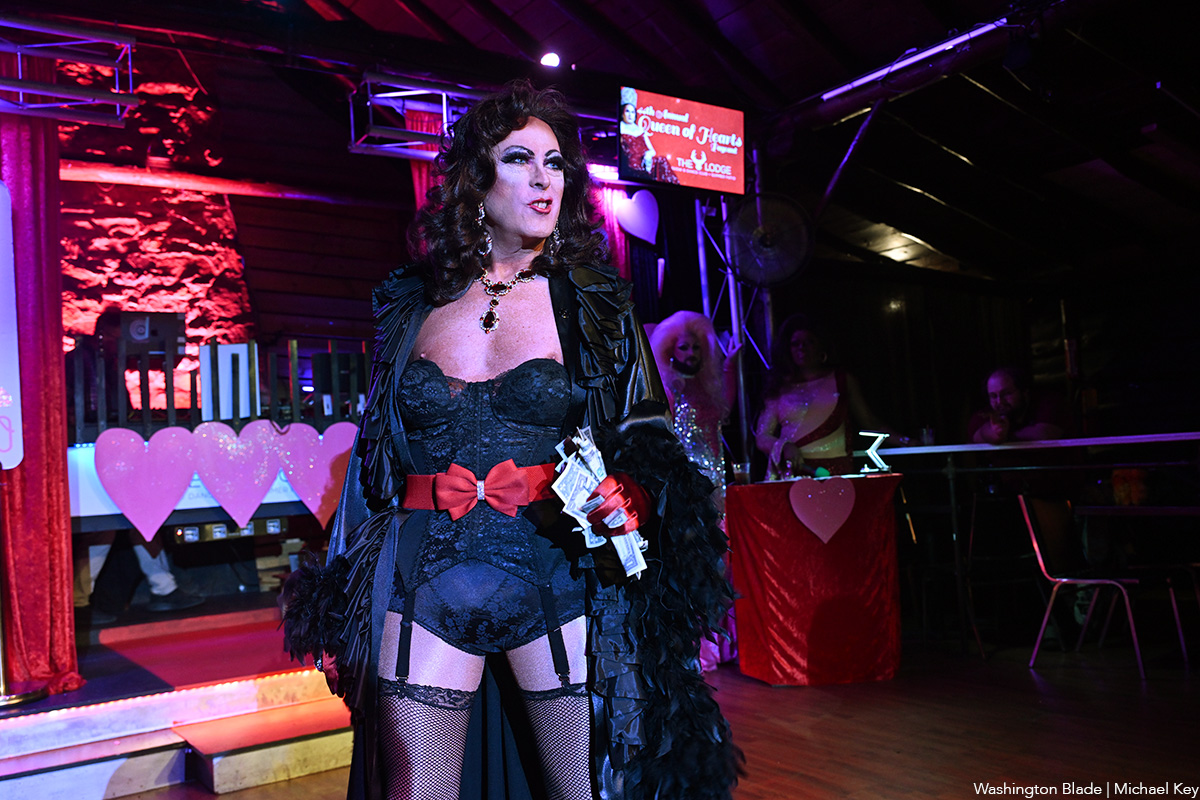
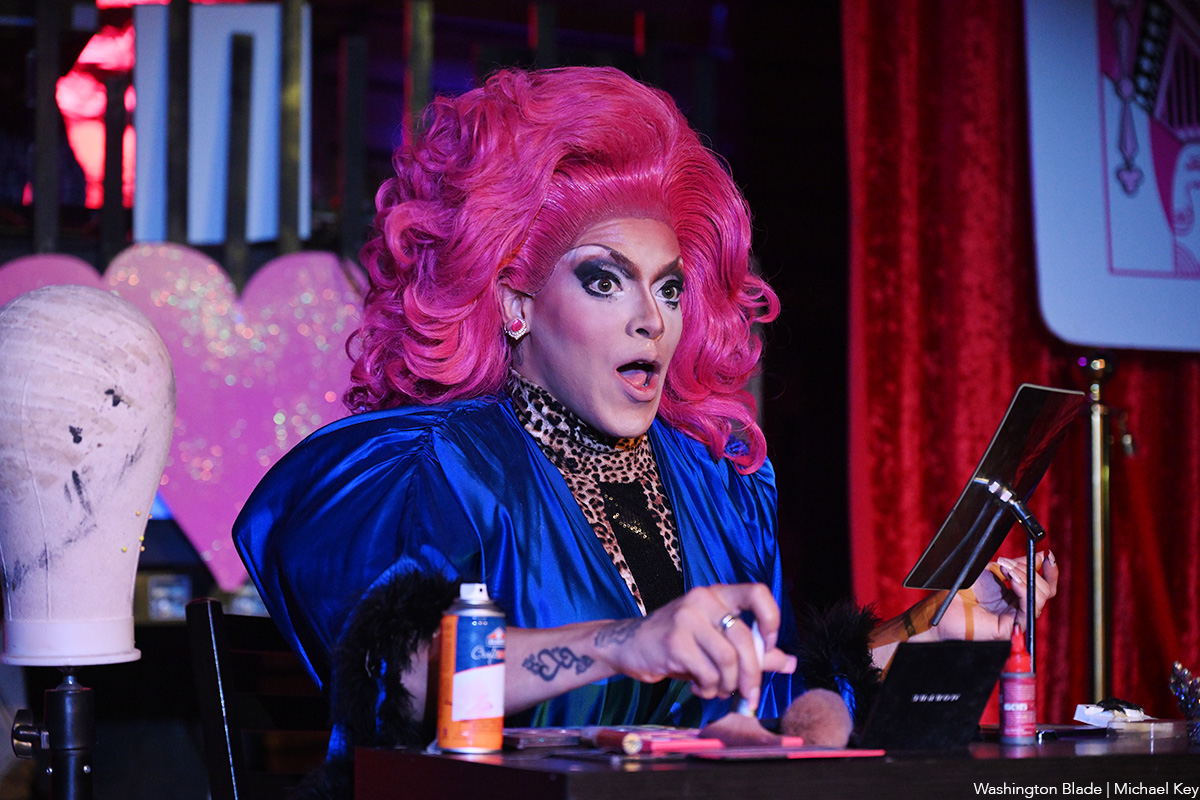
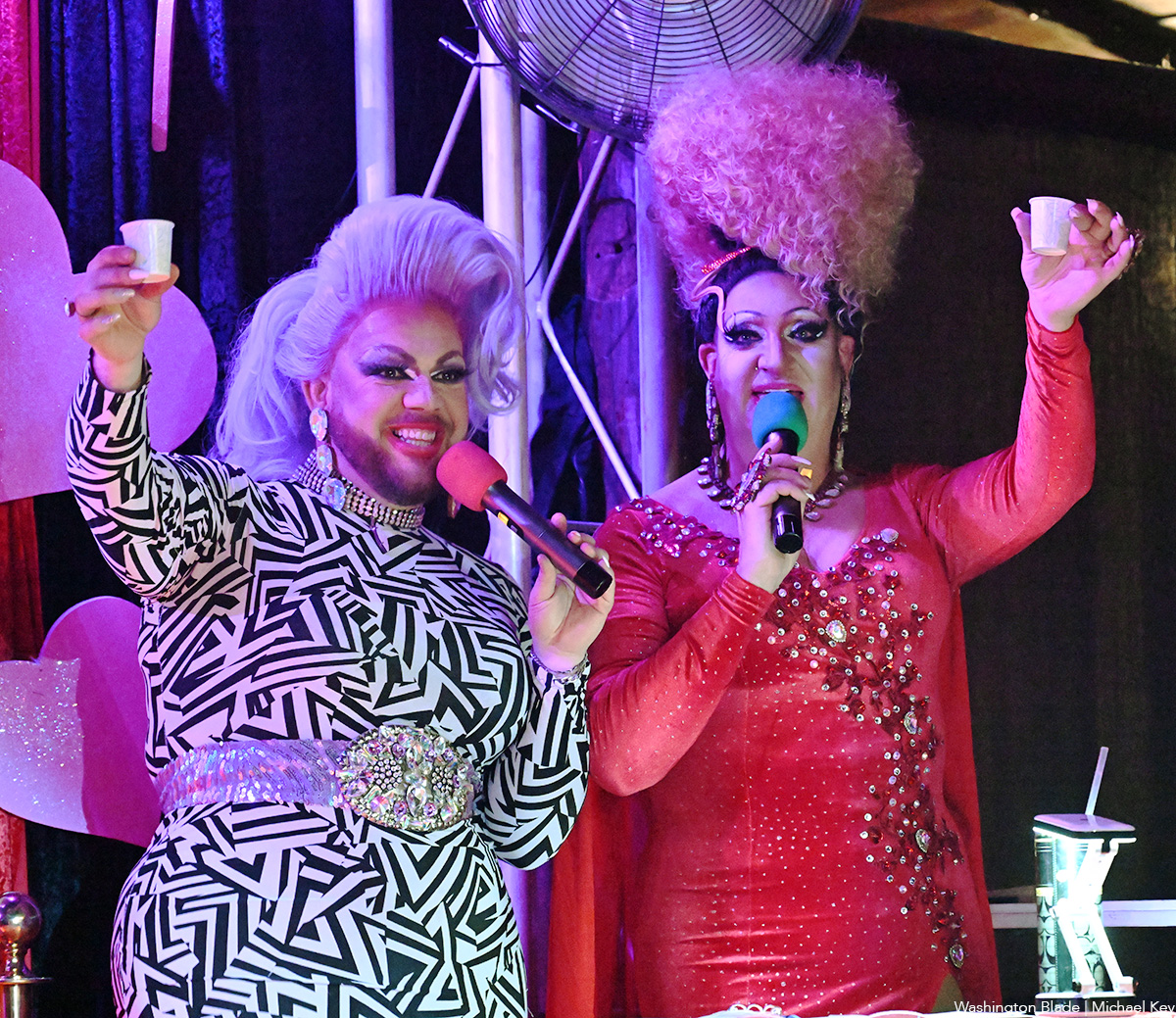
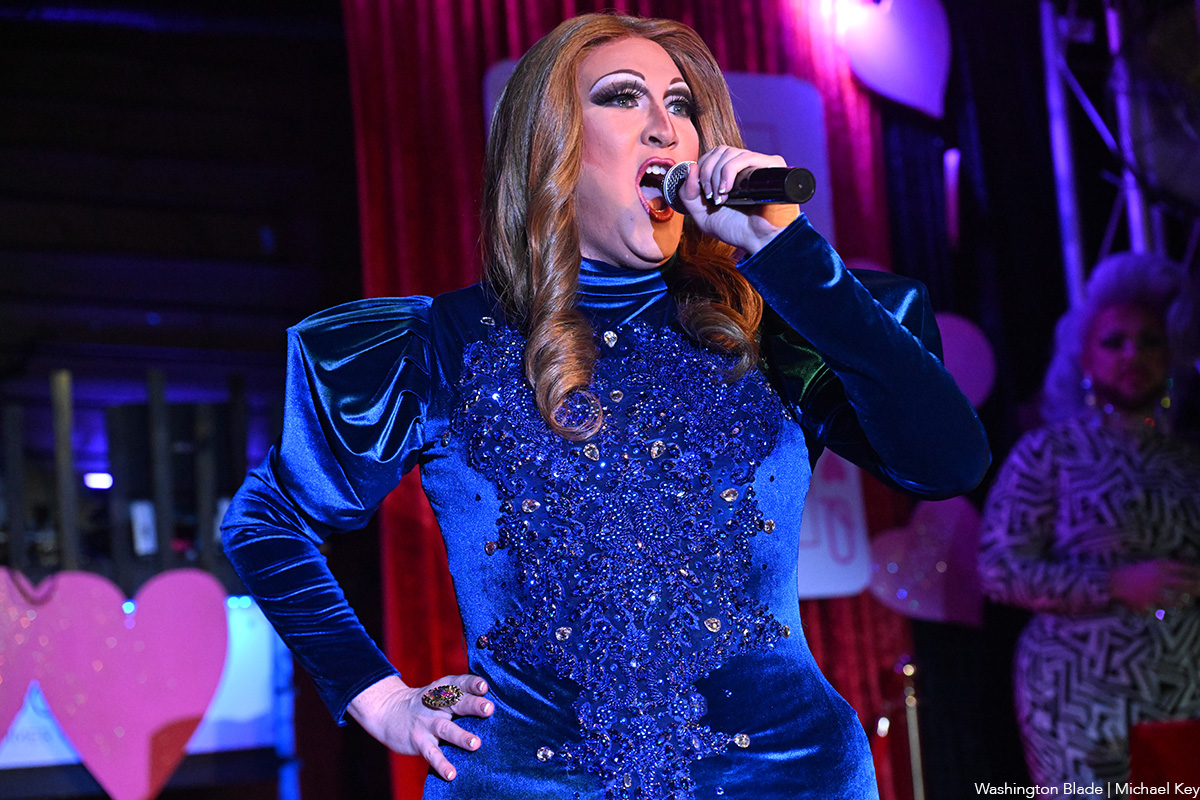
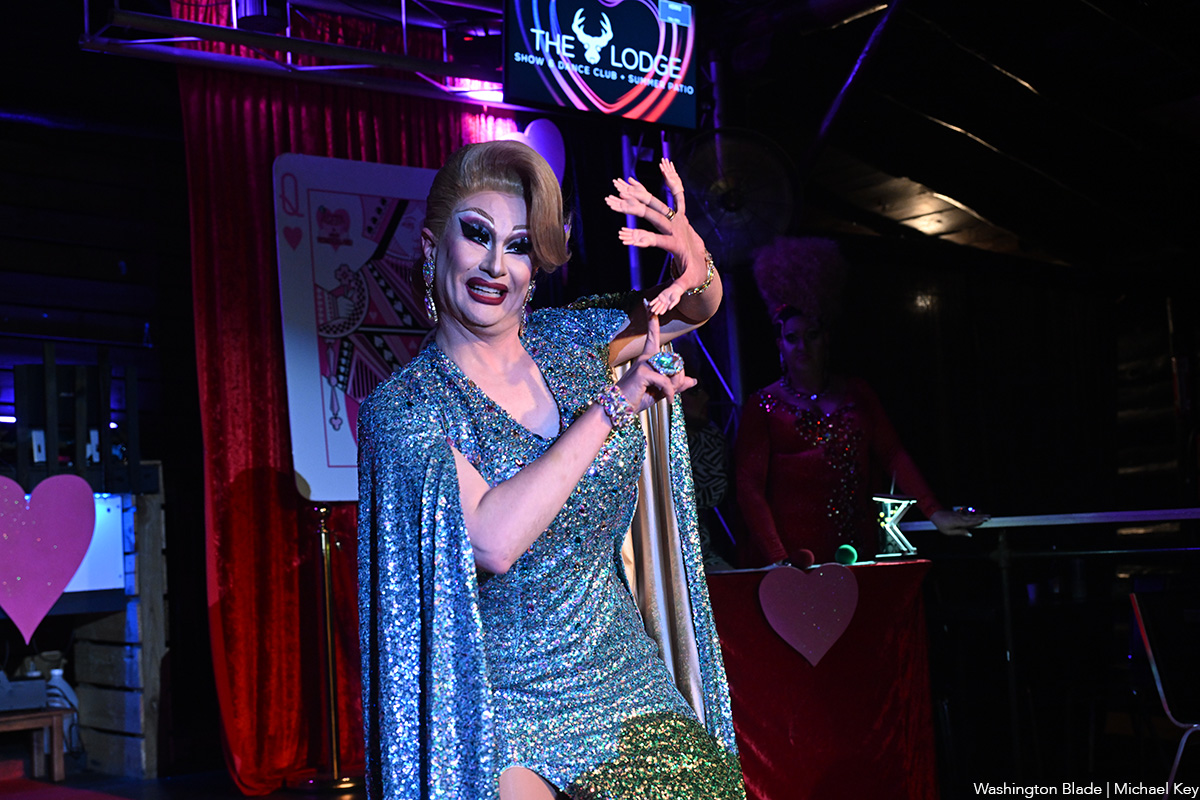
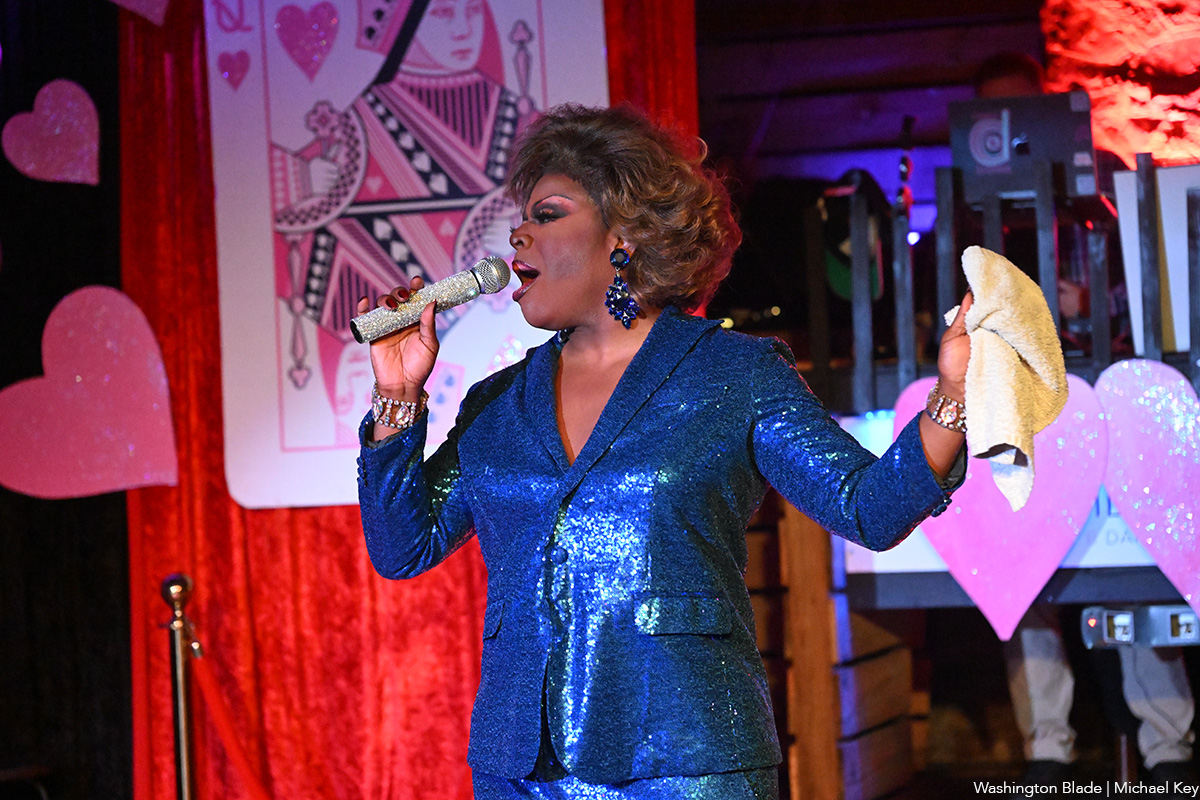
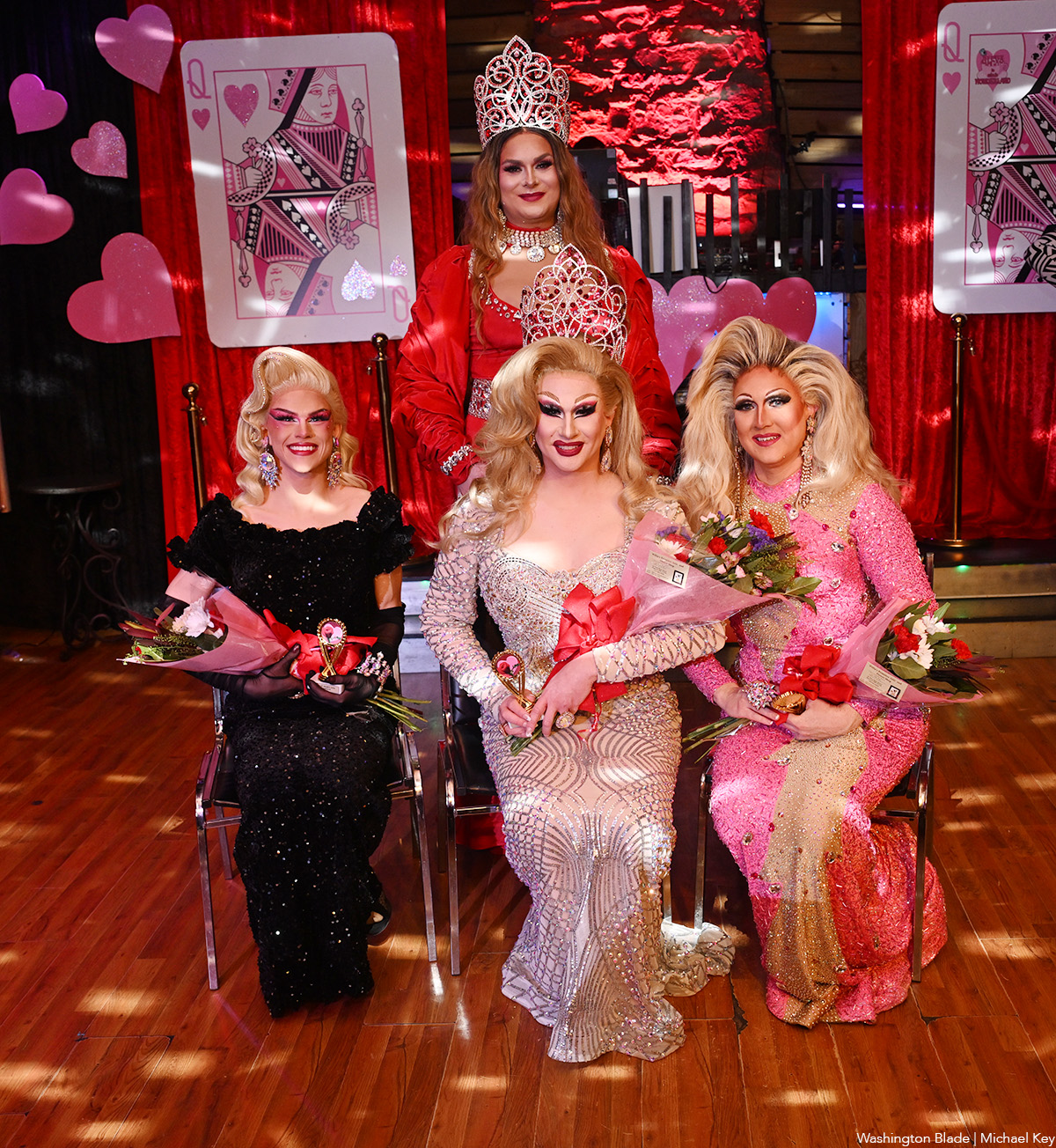
View on Threads
-

 Mexico5 days ago
Mexico5 days agoUS Embassy in Mexico issues shelter in place order for Puerto Vallarta
-

 Real Estate5 days ago
Real Estate5 days ago2026: prices, pace, and winter weather
-

 Theater5 days ago
Theater5 days agoJosé Zayas brings ‘The House of Bernarda Alba’ to GALA Hispanic Theatre
-

 Netherlands4 days ago
Netherlands4 days agoRob Jetten becomes first gay Dutch prime minister




















